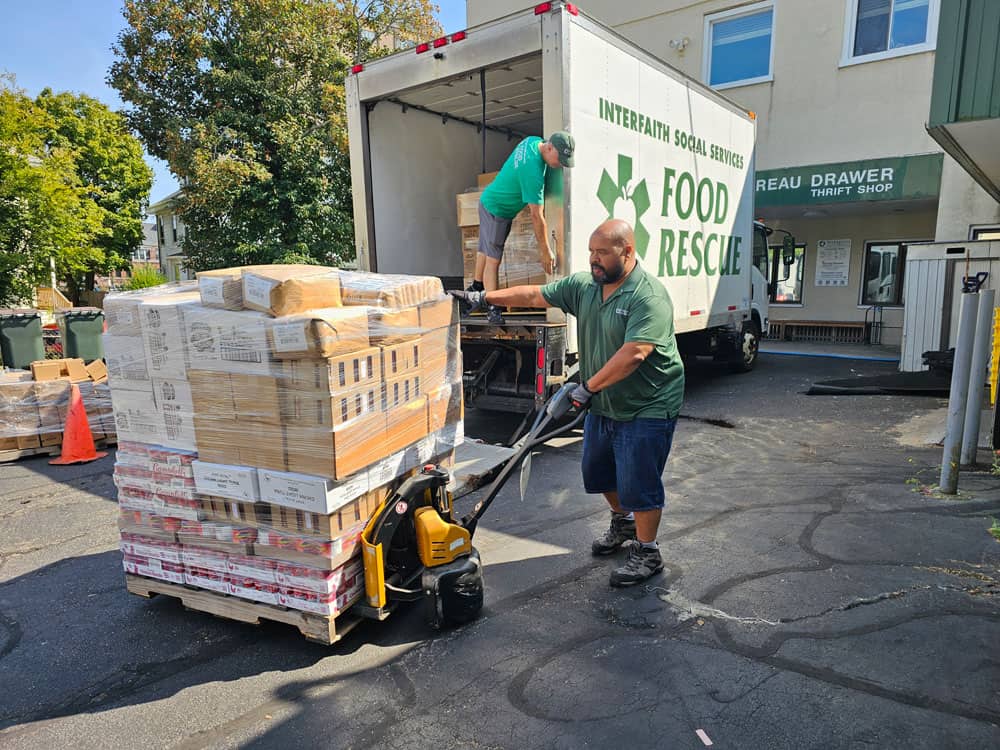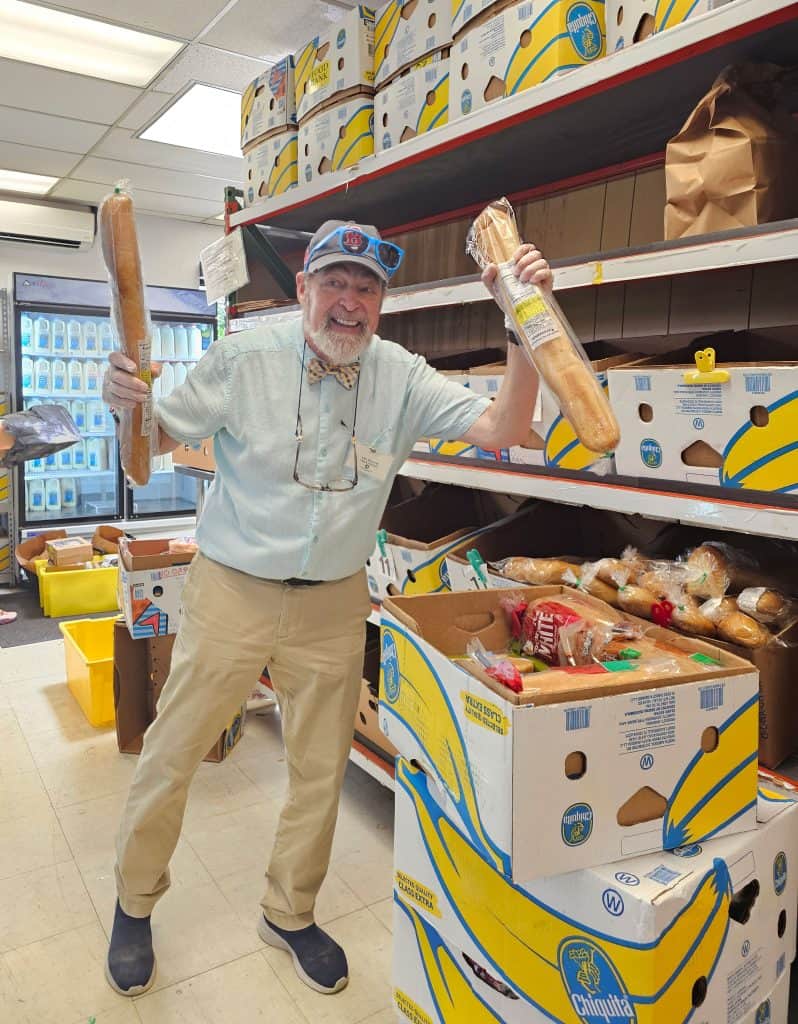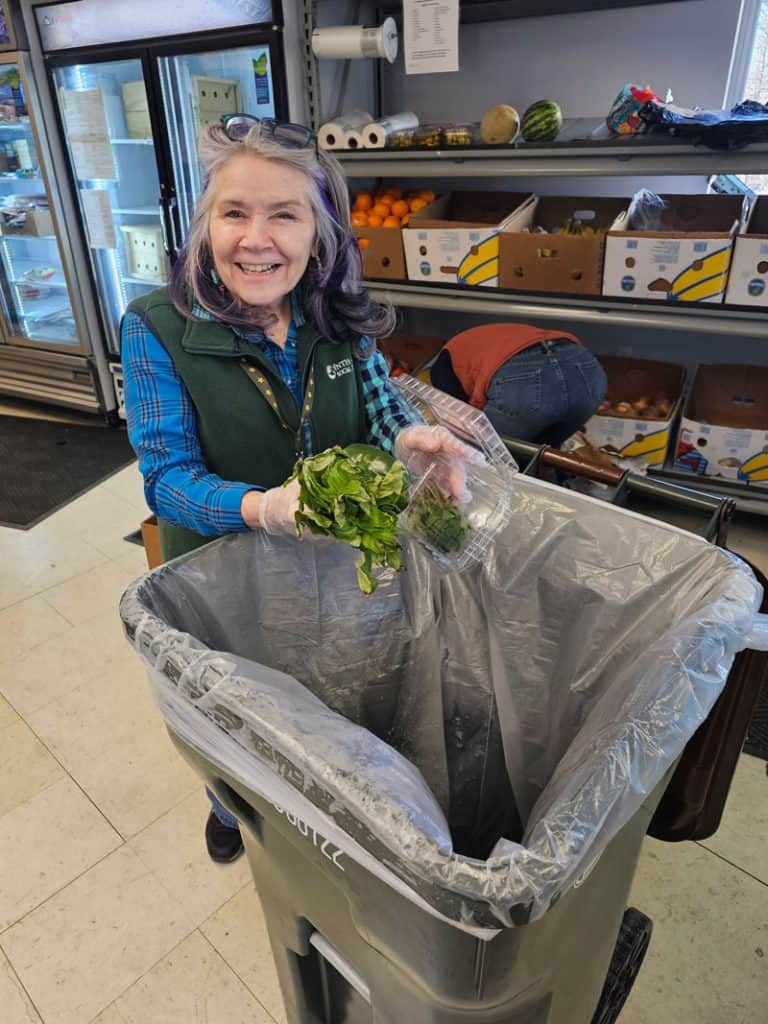Interfaith’s food rescue program diverts more than 200 tons of food to those in need
As many as 1 in 3 adults in Massachusetts are facing food insecurity, and at the same time, more than one-third of all available food in the United States is going to waste. How can that uneaten food (nearly 92 billion pounds per year) get into the hands of those who need it most? One solution is food rescue programs.
Interfaith Social Services in Quincy operates one such program, diverting more than 434,700 pounds of food last year from the waste stream to the households of Massachusetts residents in need. Since 2009, the organization has rescued more than 5 million pounds of food from local restaurants, retailers and grocery stores.
“This is more than just an initiative to feed the clients served by Interfaith Social Services’ food pantry,” said Interfaith’s Executive Director Rick Doane. “Preventing food waste is part of our collective responsibility to protect our planet and be conscientious stewards of our natural resources.”
Commercial Food Material Disposal Ban
In 2014, the Massachusetts Department of Environmental Protection banned the disposal of commercial organic waste. That meant that no one in the state could dispose of one ton or more of organic material per week. In 2022, they tightened the rule to half a ton per week. So, what happens to that food if it can’t be thrown away? It has to be composted or donated. Interfaith Social Services is part of this solution.
Interfaith’s food rescue coordinators drive a refrigerated box truck around the region five days a week, stopping at grocery stores like Stop & Shop and Trader Joe’s and retail establishments such as Target. At each stop they load up the truck with food that the stores can no longer sell. Interfaith also partners with local food rescue organization Spoonfuls for weekly deliveries of perishable foods they recover.

“For the most part, this is perfectly good food that would otherwise be heading to a landfill,” Doane said. “In some cases, the store may have over-ordered a product or the best buy dates are quickly approaching. As stores restock with new items, the old ones are pushed out and that’s what we’re rescuing.”
Doane credits local store managers who are committed to this initiative with the success of the program. “Many companies have corporate policies that mandate food must be donated, but it takes the dedication of the store’s employees and management to turn those policies into a reality,” said Doane.
Volunteer Efforts
When the boxes of food rescued from supermarkets return to Interfaith’s food pantry in Quincy, a team of volunteers sort and shelve it, making sure that the food is fresh and within food safety guidelines.
“We make it a point to only distribute food that we would feed our own families,” Doane said. “If it’s not in good enough condition to feed our own kids, we wouldn’t want to give that our client families. Interfaith’s volunteers are amazing. They tackle the herculean task of sorting thousands of pounds of food each day. We also work with a local company to compost food that is unfit for human consumption.”


How You Can Help Make a Difference
According to the U.S. Environmental Protection Agency, the average family spends $1,500 a year on food that doesn’t get eaten.
Here are some tips on how you can prevent food waste at home:
- Meal Plan – Plan your meals for the week and purchase only what is needed to make them.
- Beware BOGO Sales – Buying in large quantities, or falling for buy one get one deals, only saves money if all the food can be used before it spoils.
- Store it Right – Properly store fruits and vegetables to make them last longer and preserve freshness.
- Compost – Utilize at-home or city composting services to convert food scraps into soil or energy.
- Donate – Nutritious, untouched food can be donated to food pantries.
Learn more about Interfaith’s food rescue program at https://interfaithsocialservices.org/food-rescue
DONATE NOW to sustain our programs.
